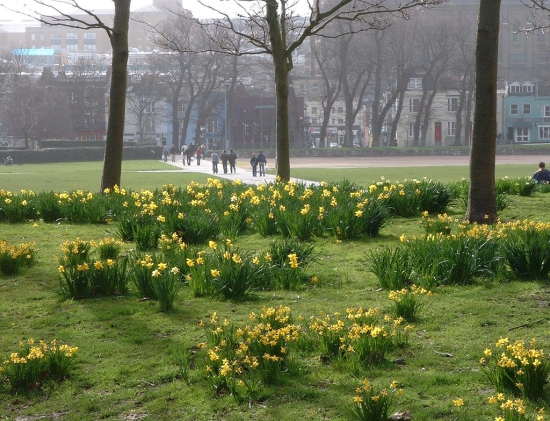The British Retail Consortium (BRC) and KPMG Retail Sales Monitor has revealed a disappointing drop in April sales thanks to poor weather earlier in the month coupled with continuing economic uncertainty. Like for like sales during the month fell by 2.2 per cent when compared to April 2012, while total sales showed a 0.6 per cent contraction.

The arrival of spring saw fashion sales rise
Yet several factors go a long way in explaining the causes for this, and do not necessarily indicate a regression in terms of sales for retailers.
First of all, fashion sales were heavily impacted by the harsh and snowy weather at the beginning of the month – however, this was almost entirely negated once warmer weather appeared in the final two weeks.
The cold weather certainly impacted the high street but perhaps also contributed to e-commerce as online sales grew by 8.3 per cent when compared with the same period last year, indicating a growing trend for the online marketplace.
Secondly, the timing of the Easter weekend is crucial in determining the success of sales in March and April. Last month sales saw a welcome growth, but that was because Easter also fell in March – had Easter fallen in April, as it did last year, the chances are a very different set of results would have been released this week.
Director General of the BRC, Helen Dickinson, points out that the figures are actually rather positive under the surface and indicate an improvement in the broader retail industry.
She says; “On the surface these are really poor figures but they’re hiding another respectable month.
“The fact that the boost from Easter didn’t fall in April this year hit food sales in particular but, taking away the Easter distortion, this was actually a better month than March – especially for non-food sales.
“Essentially, so far this year, sales growth is a small and tentative step up on where it was in 2012 but when it will take the next step is not clear.”
Furthermore, last summer’s dismal weather may prove to be a huge benefit for retailers this year, as a burst of sunshine is bound to boost spending. Head of Retail for KPMG, David McCorquodale, believes that fashion and gardening stores will especially benefit from poor results recorded last summer.
He says; “Home accessories and household sales tapered off in April after a strong showing in March and, whilst footwear and fashion sales continued to struggle early in the month with winter’s bite continuing, the arrival of spring delivered some light relief for the fashion sector.
“We hope for more good weather and good news over May and June as retailers, particularly in garden and fashion, will look for a strong performance after last year’s early summer deluge.”
As a consumer, do you feel more confident about spending in spring and summer when fine weather is a key factor for retailers, or do your finances remain at the forefront of your mind all year round?
Previous Post
Nottingham Castle Development on Hold